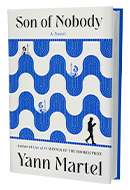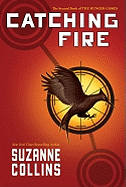The participants in the panel Stupid Things Booksellers and Publishers Do pulled no punches. Carole Horne, general manager of the Harvard Book Store in Cambridge, Mass., and Praveen Madan, co-owner of the Booksmith in San Francisco, Calif. (who acted as moderator), squared off against publishers Bob Miller of HarperStudio and Dominique Raccah of Sourcebooks. Each side offered candid opinions on what the other could be doing differently or better.
Miller outlined three points, the first of which was that booksellers should publish books when appropriate. The second was the need to better use digital mediums to promote their stores, such as video and text blogs, and having staff members with expertise in certain areas share their opinions online. "People want to buy from someone they think is knowledgeable," he said. His final point was that bookstores should buy nonreturnable to receive the greatest discount. "You should be rewarded for having low returns," he said.
Raccah also offered three ideas. The first was that booksellers should do more category analysis to expand their customer base. She cited the facts that one in every four books sold is a romance and that Amazon doesn't discount books under $10. Booksellers "could be harnessing this," she said. Raccah's second point was that, in a retail environment where there are two segments--booksellers and retailers who also sell books--indie stores should be working with their chain counterparts to make sure the emphasis stays on bookstores, she maintained.
Lastly, Raccah suggested that booksellers work more closely with independent publishers. The six major publishing houses have 54% of BookScan sales, she noted, and yet booksellers spend more than 54% of their time on them. "Bookstores should represent a wide range of titles and companies," she said.
Then it was time for the rebuttals.
"It seems like you're trying to get us into publishing," Madan said in response to Miller's idea that booksellers should sometimes act as small presses. "Publishing seems to be a terrible business." Miller countered that sometimes booksellers "can do it better" and used as an example bringing back into print a book by a local author. "You would not have returns and can control inventory," he said. He was supported by a bookseller from Massachusetts in the audience, who said that her store has published three books by an area author and gets requests for them from across the country.
Carol Horne agreed with Miller's suggestion that booksellers use digital marketing initiatives to promote their stores, but cited limited time, resources and expertise as obstacles to doing so. When Madan asked booksellers in the audience if they thought they were doing a good job with online marketing, only one hand was raised.
As for nonreturnable terms, Horne commented that she knows a lot of booksellers who have been going to publishers for years and asking for just that and have been told it isn't allowed in their distribution channel. Regarding HarperStudio in particular, she pointed out that its generous discount is for the initial buy only, not subsequent purchases. Miller responded that the initial buy would allow booksellers to see how a book sold in their stores and they could then manage future inventory accordingly.
Madan addressed Raccah's point about reaching out to romance readers and capitalizing on under-$10 books by saying that independent booksellers traditionally do not have audiences for mass market titles. "Maybe you need to look at it as an opportunity," Raccah rejoinded.
"Bricks and mortar stores of all kinds need to work together," said Horne is response to Raccah's suggestion that indies and chain stores find common ground, and noted that they all should share the concern that Amazon is not collecting sales tax. She added that right now "online retailers are a bigger threat in the way that we used to think chains were."
Madan was not optimistic about Raccah's suggestion. "We don't even do things with other independents in San Francisco," he said, and added that perhaps the focus instead should be on the competition between books and other forms of entertainment.
"As a relative newcomer to the industry," he did agree, however, that booksellers should focus their efforts on more than the six major publishers but cautioned that independent houses need to "make it easier" to work with them. Of paramount importance is signing on with a large distribution company so that stores can get books quickly. Co-op is another area to keep in mind, he said. "Books might get carried, but they won't get promoted if there is no co-op."
Booksellers critique publishers
The tables were turned during the second part of the panel, when Madan and Horne offered their opinions to publishers. Horne advocated that publishers need to think more strategically about the distribution of their books and how they're going to support all of them; that they need to stop publishing so many "mediocre copycat" titles in response to "whatever the last big book was." She urged them not to "waste money and resources" sending out promotional items. Having supplemental materials available online is more effective.
Madan mentioned "quick hits" that publishers could "go back and change in a day." One was to streamline the co-op process and make it easier to navigate by having a standard, industry-wide program. Another was for publishers to band together and produce a "good, clean" electronic catalogue that is free and can be used on booksellers' websites. His final recommendation was that publishers stop helping support the American Booksellers Association and the regional booksellers associations financially, suggesting that as a result the organizations are answering to publishers and not to booksellers. Publishers "have to learn to work with 2,000 independent bookstores," he said, "not work through the association and treat it as a national marketing program."
With time running short for the publishers' rebuttals, Raccah suggested that the Book Industry Study Group look into the creation of an industry-wide electronic catalogue. Miller commented that "better nonreturnable terms would eliminate the need for co-op." Raccah chimed in that very small presses would have a more difficult time selling nonreturnable because booksellers might be less inclined to take risks on their books. It's something that might work better for backlist books, she said, since booksellers already know what to expect. Horne noted that publishers want to reduce returns on frontlist titles, not the backlist. As for Madan's point about the booksellers associations, one audience member said that publishers shouldn't be blamed for any issues booksellers might have with the organizations.
Concerning Horne's comment about distribution channels receiving different discounts, Miller responded that there is a "deeper problem, which is that large trade publishing is in a death spiral because of unearned advances." He paraphrased Warren Buffett's statement that when the tide goes out you see who has been swimming without a bathing suit. "When you overpay," he added, "you have to overhype."
Audience member Carla Cohen of Politics & Prose in Washington, D.C., wrapped things up, saying that publishers could cut down on returns by producing fewer hardcovers and publishing "attractive paperbacks the first time around."--Shannon McKenna Schmidt









 Last month, to help
Last month, to help 

 Food, Inc., which opens this Friday, June 12, is an unappetizing look at America's food industry that includes commentary by Michael Pollan, author of The Omnivore's Dilemma (Penguin, $16, 9780143038580/0143038583), and Eric Schlosser, author of Fast Food Nation (Harper, $14.95, 9780060838584/0060838582). The movie tie-in is Food Inc.: A Participant Guide: How Industrial Food is Making Us Sicker, Fatter, and Poorer-And What You Can Do About It edited by Karl Weber (PublicAffairs, $14.95, 9781586486945/1586486942).
Food, Inc., which opens this Friday, June 12, is an unappetizing look at America's food industry that includes commentary by Michael Pollan, author of The Omnivore's Dilemma (Penguin, $16, 9780143038580/0143038583), and Eric Schlosser, author of Fast Food Nation (Harper, $14.95, 9780060838584/0060838582). The movie tie-in is Food Inc.: A Participant Guide: How Industrial Food is Making Us Sicker, Fatter, and Poorer-And What You Can Do About It edited by Karl Weber (PublicAffairs, $14.95, 9781586486945/1586486942). Do not worry--there are no spoilers in this review. Instead, save your worries for the memorable characters that Collins gave us in The Hunger Games. Anytime you have a Capitol willing to sacrifice two children ("tributes") under the age of 18 from each of the 12 Districts of Panem, there's plenty of panic to go around. As this sequel opens, Katniss, Peeta and Haymitch, their mentor, are preparing to depart their home, District 12, on a Victory Tour to all of the districts. The tour is "strategically placed almost midway between the annual Games . . . the Capitol's way of keeping the horror fresh and immediate." But just before their departure, Katniss gets a surprise visit--in the very first chapter--from President Snow himself, trailing the scent of blood and roses. This year marks the 75th anniversary of the Games; every 25 years there's a Quarter Quell--"for extra fun, [the Capitol adds] some miserable twist for the tributes." For the 50th anniversary Quarter Quell, the Capitol called for twice the number of tributes--48 children instead of 24--to compete in the Games. What sacrifice will the Capitol demand this year?
Do not worry--there are no spoilers in this review. Instead, save your worries for the memorable characters that Collins gave us in The Hunger Games. Anytime you have a Capitol willing to sacrifice two children ("tributes") under the age of 18 from each of the 12 Districts of Panem, there's plenty of panic to go around. As this sequel opens, Katniss, Peeta and Haymitch, their mentor, are preparing to depart their home, District 12, on a Victory Tour to all of the districts. The tour is "strategically placed almost midway between the annual Games . . . the Capitol's way of keeping the horror fresh and immediate." But just before their departure, Katniss gets a surprise visit--in the very first chapter--from President Snow himself, trailing the scent of blood and roses. This year marks the 75th anniversary of the Games; every 25 years there's a Quarter Quell--"for extra fun, [the Capitol adds] some miserable twist for the tributes." For the 50th anniversary Quarter Quell, the Capitol called for twice the number of tributes--48 children instead of 24--to compete in the Games. What sacrifice will the Capitol demand this year?